Dreams involving mirrors are among the most powerful and symbolic experiences we can have while asleep. They are more than just reflections; they are windows into our subconscious, revealing our deepest truths, fears, and desires. The dream mirror theory provides a framework for understanding these potent symbols, suggesting that anything and everything reflected in a dream mirror is a direct representation of an aspect of the dreamer’s self.
This post will explore the question, “What is the dream mirror theory?” and how it helps us interpret the complex symbolism of mirrors in our dreams. We will look at common interpretations through spiritual and Christian lenses, providing a guide to understanding what your inner world is trying to show you. By learning to read these reflections, you can unlock profound insights into your own identity and spiritual journey.
What Is the Dream Mirror Theory?

The dream mirror theory is a concept in dream analysis that proposes mirrors in dreams act as a direct reflection of the self. According to this theory, a mirror doesn’t just show your physical appearance; it reveals your inner state, your hidden emotions, your true identity, and parts of your personality you may not be consciously aware of. Everything you see in a dream mirror—whether it’s yourself, a stranger, a distorted image, or an object—is a symbolic representation of something within you.
Think of the dream mirror as your subconscious mind holding up a sign. It bypasses the ego and social masks to show you the raw, unfiltered truth of your inner landscape. This theory suggests that the mirror is a tool for self-confrontation. It forces you to look at who you really are at that moment, free from the justifications and defenses you might use in your waking life.
The condition of the mirror and the nature of the reflection are crucial. A clear image might symbolize self-acceptance, while a broken or distorted reflection could point to a fragmented self-image or internal conflict. The dream mirror theory provides a powerful lens to decode these visions and turn them into actionable self-awareness.
Dreams About Mirrors: Common Interpretations (Spiritual)
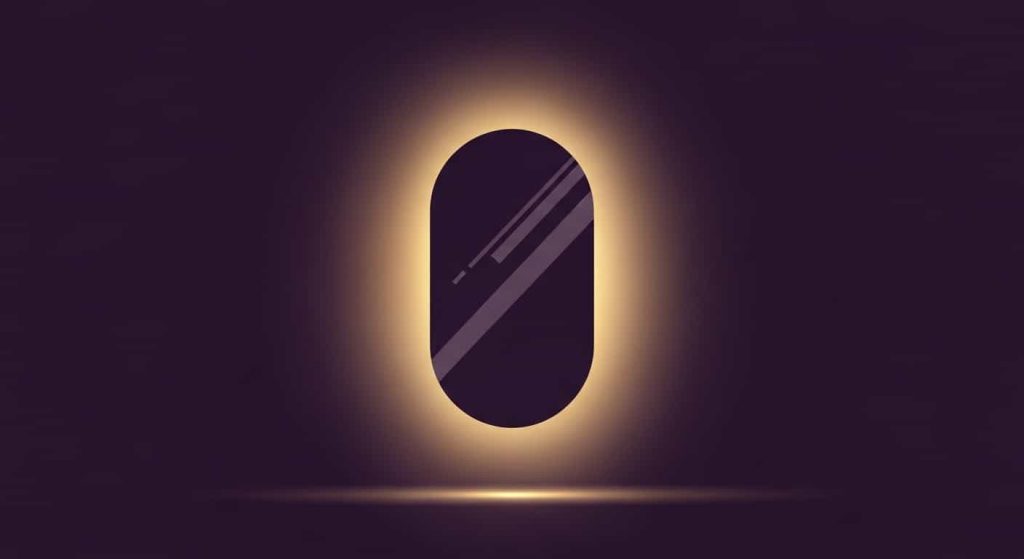
From a spiritual perspective, the dream mirror theory takes on an even deeper meaning. Dreams about mirrors have common interpretations. Spiritual views see the mirror as a portal to the soul or a connection to a higher consciousness. It’s a sacred space where the spiritual and psychological selves meet.
Here are some common spiritual interpretations based on the dream mirror theory:
1. A Reflection of Your True Self (Atman)

Many spiritual traditions believe in a “true self” or “higher self” that exists beyond the ego. A mirror in a dream can provide a glimpse of this authentic self. Seeing a radiant, peaceful, or powerful version of yourself can be a sign that you are aligning with your spiritual purpose and connecting with your true nature.
2. Confronting the Shadow Self
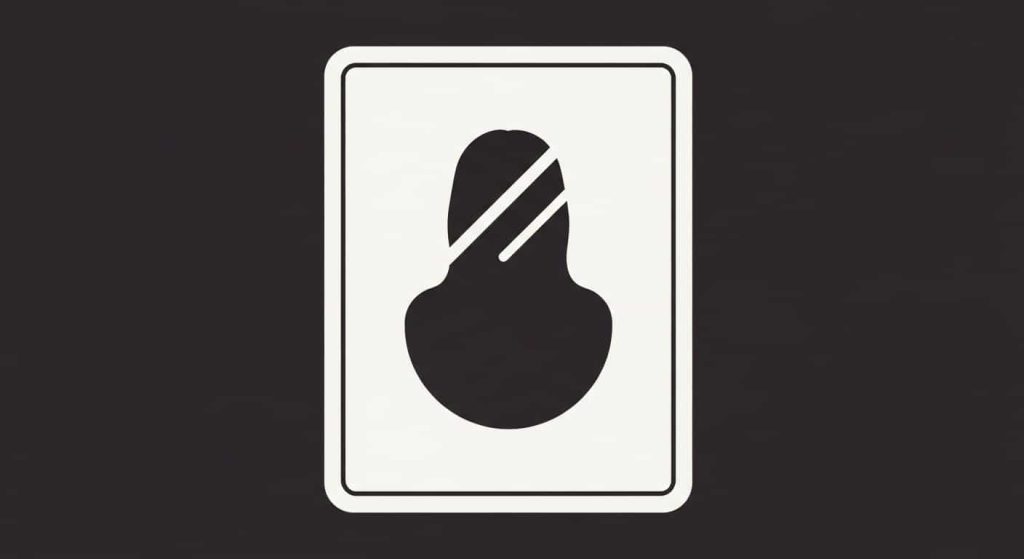
Spiritual growth often involves confronting the “shadow”—the parts of ourselves we deny, repress, or dislike. A dream mirror is the perfect stage for this confrontation. If you see a monstrous, ugly, or frightening reflection, the dream mirror theory suggests this is not an external threat, but a part of you that is asking for acknowledgment and healing. Integrating this shadow is a vital step toward wholeness.
3. A Gauge of Spiritual Clarity

The clarity of the reflection can indicate your level of spiritual awareness. A foggy, dirty, or dim mirror might suggest that your spiritual vision is clouded by worldly concerns, negative emotions, or illusion (Maya). The dream is a call to cleanse your spiritual perception through practices like meditation, prayer, and self-reflection to see yourself and your path more clearly.
Dreams About Mirrors: Common Interpretations (Christianity and the Bible)

When we apply the dream mirror theory to a Christian worldview, the interpretations become deeply intertwined with scripture and faith. For dreams about mirrors, common interpretations in Christianity and the Bible offer a unique framework for understanding these visions as messages about one’s relationship with God.
The dreams about mirrors have common interpretations. Spiritual Christianity perspective views the mirror as a symbol of self-examination in the light of God’s word. The dreams about mirrors, common interpretations spiritual Bible themes revolve around truth, imperfection, and transformation.
1. The Mirror as the Word of God

James 1:23-24 provides a foundational metaphor. It compares someone who hears God’s word but doesn’t act on it to a man who looks in a mirror, walks away, and forgets his own face. In this context, the dream mirror theory suggests that seeing your reflection is a call to not just be a “hearer” but a “doer” of the word. The reflection shows you who you are at that moment, and the dream asks: Does this reflection align with the person God calls you to be?
2. Acknowledging Imperfect Perception
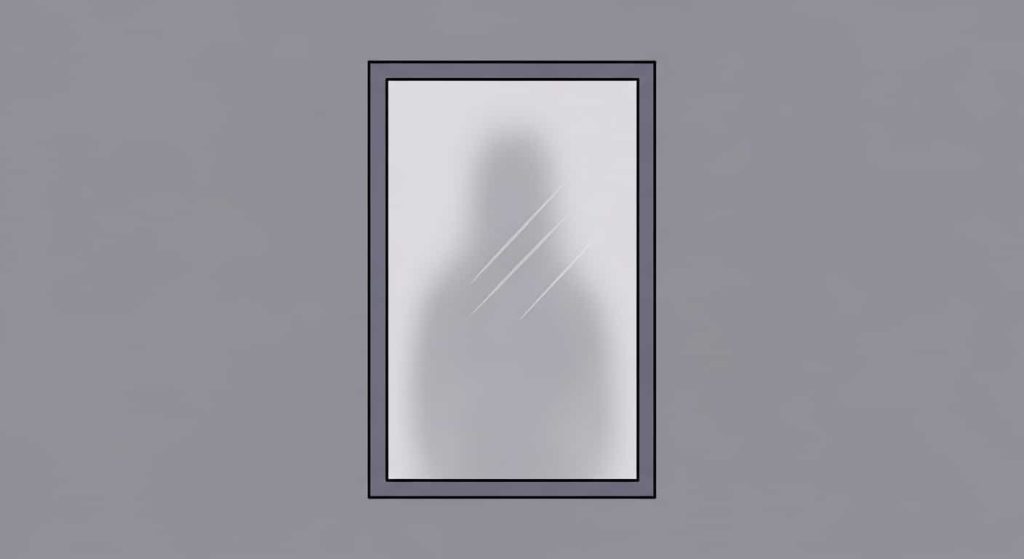
1 Corinthians 13:12 states, “For now we see in a mirror, dimly, but then face to face.” This scripture is central to the dreams about mirrors, common interpretations Biblical view. According to the dream mirror theory, a reflection in a dream can symbolize our current, flawed human understanding. It’s a reminder of our limitations and the need for faith. The dream encourages humility, acknowledging that we don’t have all the answers but must trust in God’s perfect knowledge.
3. A Reflection of Christ in You

A core goal of the Christian faith is to become more like Christ. A dream mirror might reflect your progress on this journey. Seeing a positive, light-filled reflection could be an encouragement from the Holy Spirit, affirming that Christ’s character is being formed in you. Conversely, a negative reflection could be a form of gentle conviction, highlighting attitudes or behaviors (like pride, anger, or unforgiveness) that are inconsistent with a Christ-like nature. The dream is an invitation to repent and allow God to continue His transformative work.
4. Shattering Worldly Identities
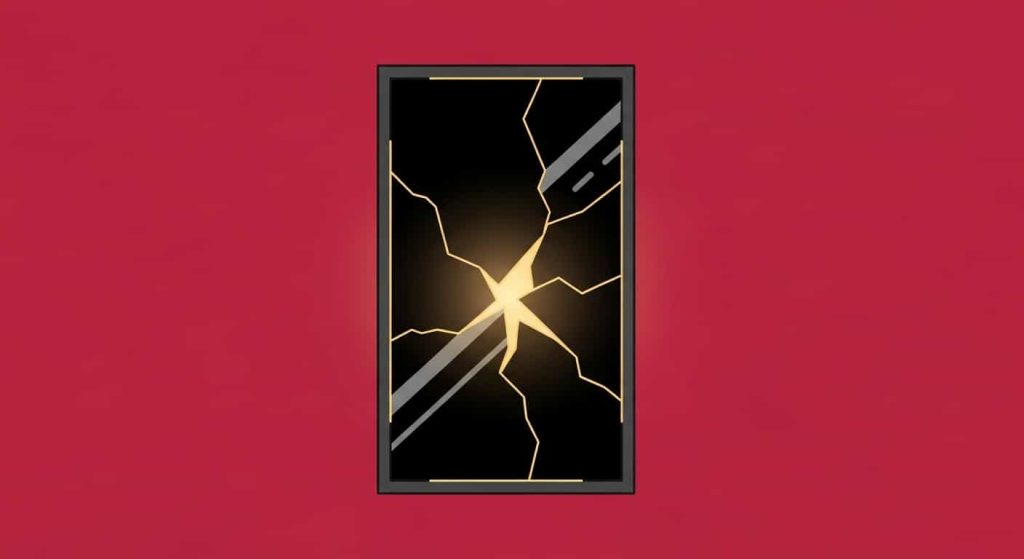
If you dream of a broken mirror, the dream mirror theory suggests a breaking of your identity. In a Christian context, this can be profoundly positive. It can symbolize the shattering of a false, worldly identity that you have built for yourself. It represents the painful but necessary process of letting go of pride, self-reliance, and worldly values to find your true identity in Christ alone.
Conclusion: The Mirror Is You
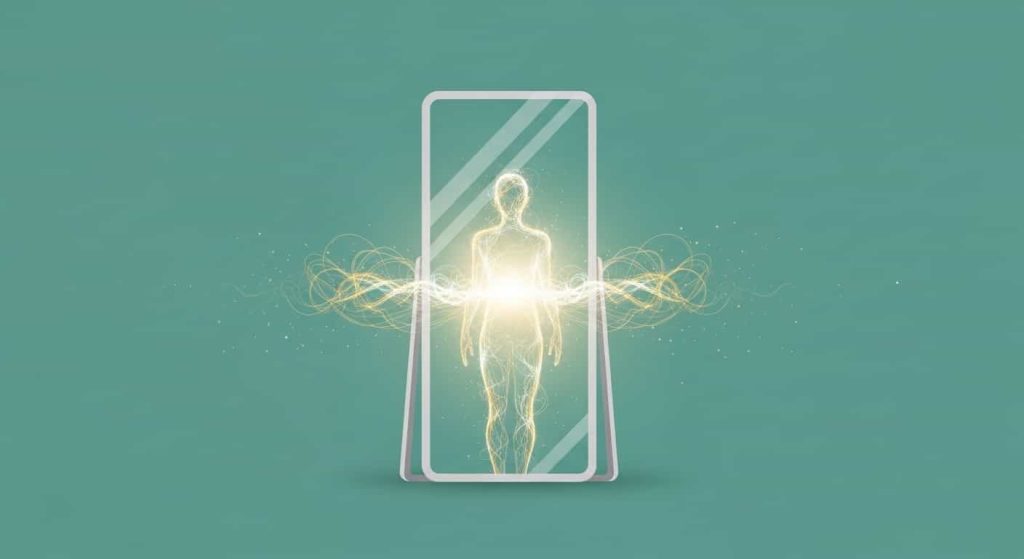
The dream mirror theory demystifies one of the most intriguing dream symbols. It teaches us that we are not passive observers in our dreams, but active participants confronting ourselves. The mirror is a personal feedback tool, reflecting our inner state with unflinching honesty. It doesn’t show us what we want to see, but what we need to see for our own growth.
Whether you interpret your dream through a spiritual or biblical lens, the core message of the dream mirror theory remains the same: the reflection is you. By bravely looking at what the mirror shows, you can gain invaluable insight, heal hidden wounds, and move forward on your life’s path with greater authenticity and self-awareness. The next time you dream of a mirror, don’t turn away. Look closely, for it holds a key to understanding yourself.
